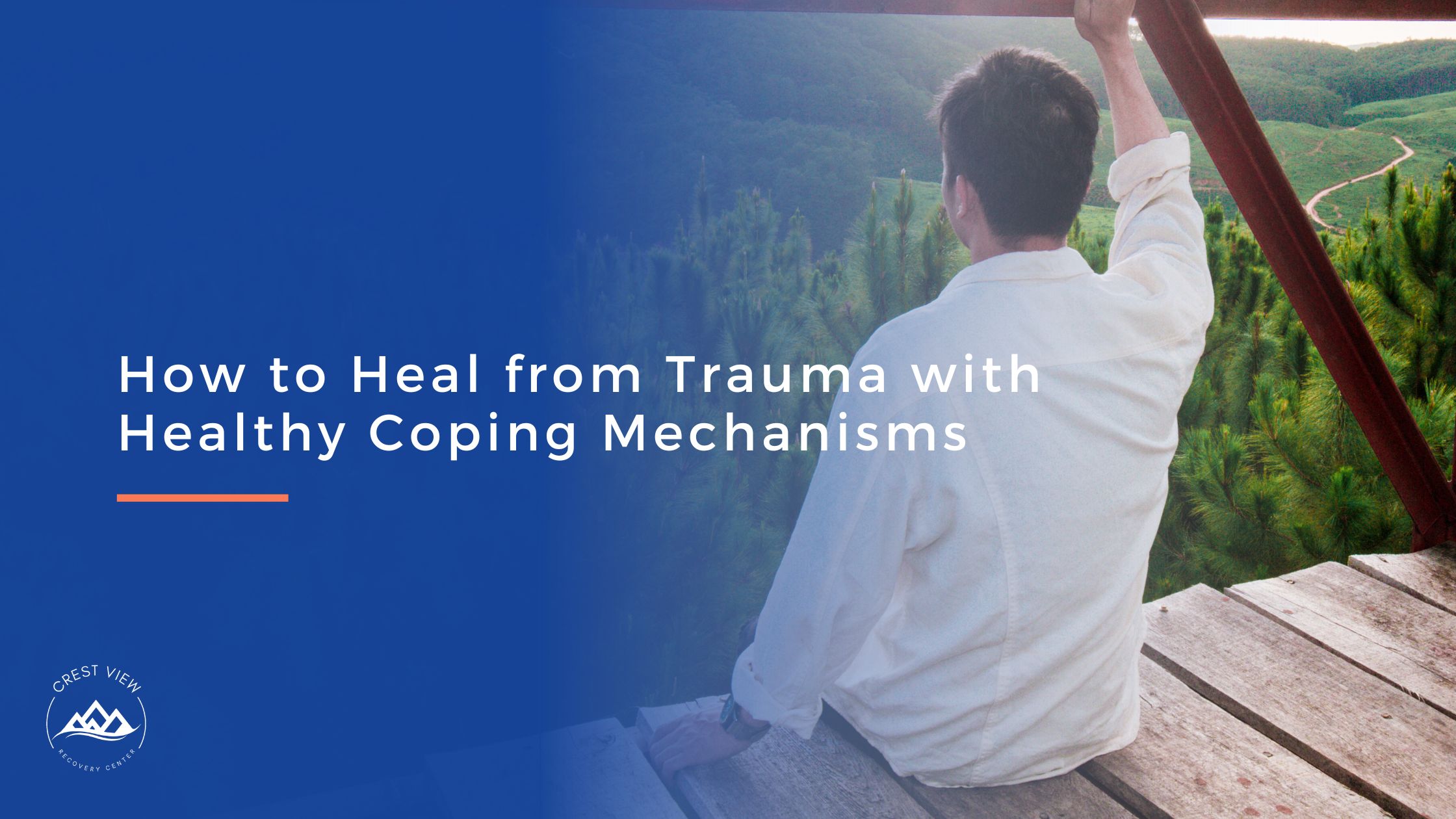Trauma can feel like an insurmountable obstacle, but understanding how to heal from it is crucial for anyone seeking a healthier, more fulfilling life. For those in addiction treatment, comprehending the interplay between trauma and recovery is vital. Contact Crest View Recovery Center online or call 866.327.2505 to learn more about the importance of healing from emotional and physical trauma and what you can expect from our trauma therapy in Asheville, North Carolina.
Why Is Learning How to Heal from Trauma Crucial?
Trauma, whether emotional or physical, leaves deep imprints on the mind and body. If untreated, it can lead to behavioral and psychological issues, including addiction. Healing from trauma isn’t just about overcoming past wounds—it’s about reclaiming your life and building resilience for future challenges. Key reasons for learning to recover from trauma include:
- Mental clarity – Healing improves focus and reduces anxiety and depression.
- Physical health – Addressing trauma can improve overall well-being.
- Relationship building – Healing fosters healthier relationships by resolving trust issues and emotional barriers.
Understanding the importance of healing from trauma can be a game-changer, offering a pathway to sobriety and better mental health.
How to Recover from Emotional Trauma
Healing from emotional trauma involves several steps and often requires professional support. Trauma can come from abuse, loss, or major life changes. The first step is acknowledging the need for help. Therapists specializing in trauma can provide essential tools and support. Professional help offers personalized treatment plans, a safe space to express emotions, and expert coping strategies.
How to Recover from Physical Trauma
Recovering from physical trauma takes time and often requires medical intervention and emotional support. Following medical guidelines and attending follow-up appointments ensures proper healing and reduces complications. Monitoring mental health is also important, as physical trauma can affect emotional well-being. Address emotional distress by seeking counseling if needed, practicing stress-relief techniques, and staying connected with loved ones. These steps support comprehensive recovery.
How Is Trauma Related to Addiction?
Understanding the link between trauma and addiction is crucial for effective recovery. Consider these points:
- Trauma as a root cause – Many use substances to cope with unresolved trauma, often leading to addiction.
- Dual diagnosis treatment – Treating both trauma and addiction simultaneously offers a comprehensive approach to recovery.
- Breaking the cycle – Addressing trauma can break the cycle of addiction, providing a sustainable path to sobriety. Trauma therapy helps heal past wounds, reducing dependency on substances.
Recognizing the trauma-addiction connection can help tailor treatment plans or healthy coping mechanisms that address both issues at once.
What Are Some Examples of Healthy Coping Mechanisms?
Mindfulness Practices
Incorporating mindful breathing, meditation, and yoga into daily routines can help individuals cope with stress and manage emotions healthily. These practices promote calm and awareness, allowing people to stay grounded and present.
Physical Activity
Engaging in regular exercise not only improves physical health but also releases endorphins, the body’s natural mood lifters. These boost overall mood and reduce anxiety. Activities such as running, cycling, or even a brisk walk can significantly improve mental well-being.
Creative Outlets
Exploring creative outlets like writing, art therapy, or other pursuits can offer a healthy way to express and process difficult emotions. Whether through painting, journaling, or crafting, these activities provide a constructive channel for feelings and thoughts.
Seeking Support
Connecting with others who have had similar experiences can offer understanding and reduce feelings of isolation. Support groups, therapy, or talking with friends and family can provide the emotional support and encouragement needed to navigate challenging times.
Connect with Crest View Recovery Center and Start Trauma Therapy in Asheville, NC
At Crest View Recovery Center, we are committed to supporting you on your healing journey. Our trauma therapy in Asheville, North Carolina, offers a comprehensive approach to healing, ensuring you receive the care and support you need. Contact us online or call 866.327.2505 today to learn more about our services and how we can help you find lasting recovery.

